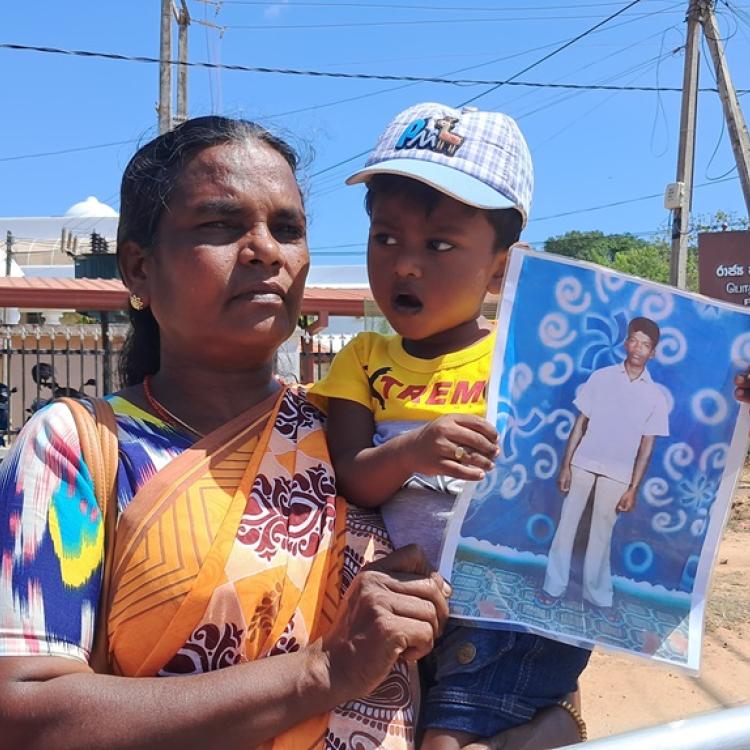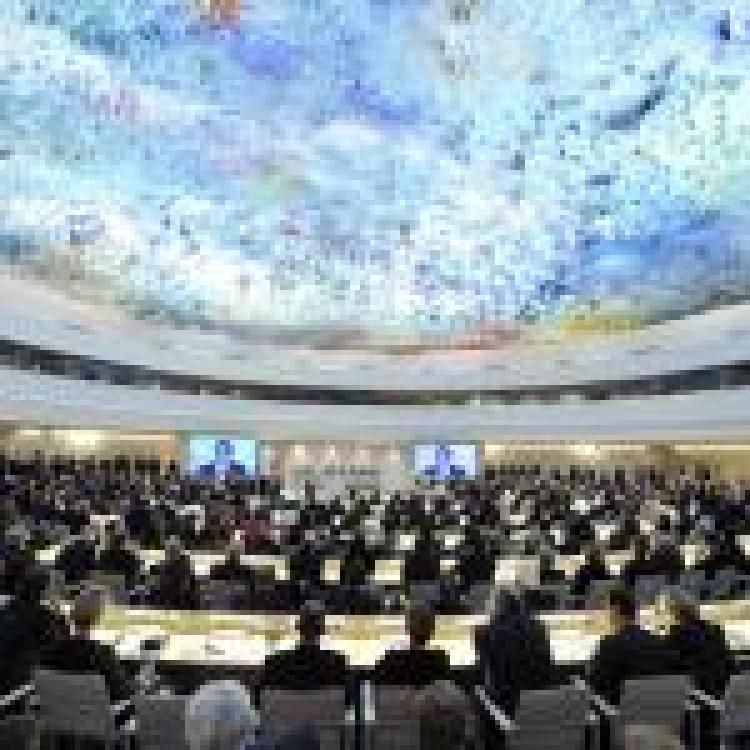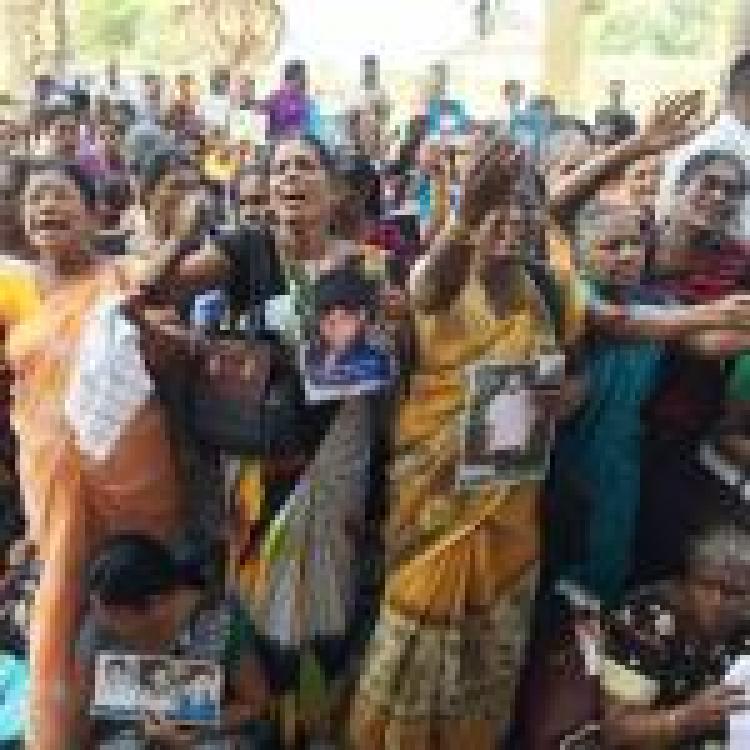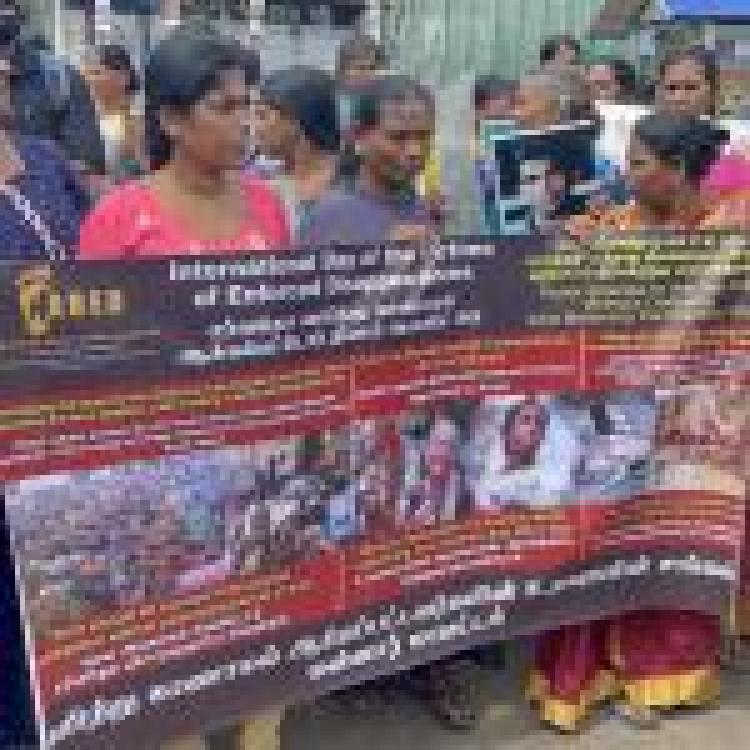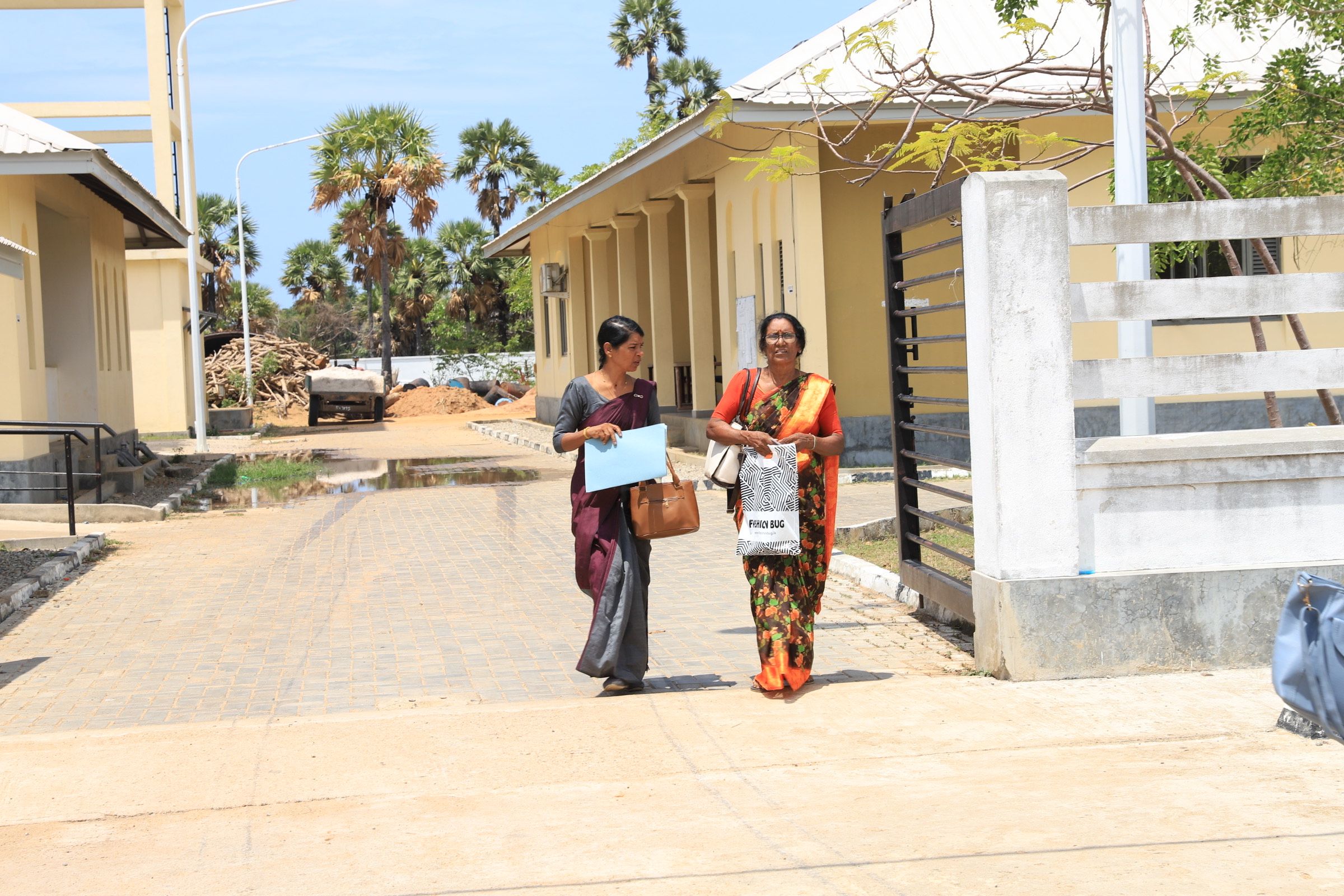
A Tamil mother, whose son was forcibly disappeared after surrendering to the Sri Lankan security forces during the final days of the 2009 genocide, has demanded that authorities reveal his whereabouts during a court hearing last month, after more than 15 years of searching.
The habeas corpus case was heard in the Sri Lankan courts in Mullaitivu, where the mother was represented by human rights lawyer Ratnavel. During the proceedings, Ratnavel informed the court that her son remains missing and that there has been no investigation by the Sri Lankan security forces or the government over the years. He stated that her son surrendered to the Sri Lankan army at the Mullaitivu camp and was last seen being transported in buses along with other Tamil youths. Since that time, no information about his fate has been available.
The mother was cross-examined by the prosecution, and her testimony was recorded. The next hearing has been scheduled for November 7. Since the end of the armed conflict and Mullivaikkal genocide in 2009, hearings regarding the disappearance of at least 20 Tamil youths have taken place in various courts across the North-East. To date, their whereabouts remain unknown, and no one has been held accountable for their abductions.
Families of the disappeared have been actively protesting throughout the North-East, demanding an international investigation and accountability mechanism for enforced disappearances. They have rejected the death certificates and compensation offered by the Sri Lankan government's Office of Missing Persons, insisting that they want answers, not financial compensation, which they claim is merely an attempt to silence them. The Sri Lankan government has refused to engage with any international accountability mechanisms.
Earlier this year, the Core Group on Sri Lanka made a statement at the 56th session of the UN Human Rights Council, urging the government to "address the suffering caused by enforced disappearances." This followed a report by the UN High Commissioner, which highlighted ongoing concerns.

